Christmas in Greece is one of the most remarkable times of the year. As soon as December starts, the spirit of the season fills the homes and every corner of the country. Shiny lights, festive songs and distinctive aromas take over, preparing people for the celebration of Christmas day and the new year to come. From decoration to sweets, Greek Christmas traditions and customs are special. Take a look at some of those that make holidays memorable.
Decorating a Christmas boat
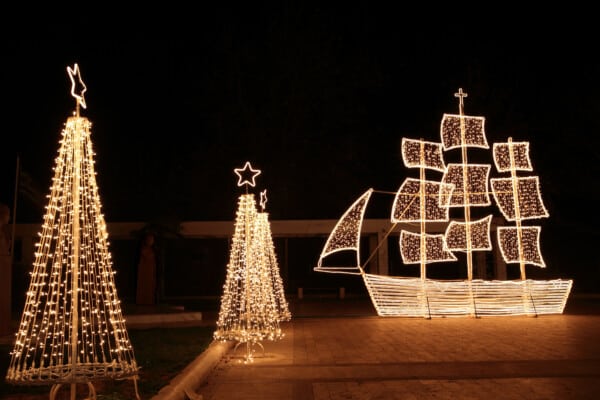
Greece is known for its islands and vast coastline. The connection of people with the sea is very strong as shipping was a main occupation for Greeks for thousands of years. Long before the decoration of Christmas Trees became popular, greek people, especially the ones living close to the sea used to decorate boats – a costume brought by the Bavarian king Otto.
Although decorating trees is now more prevalent, a lot of people still choose to decorate boats, keeping the tradition alive.
Baking greek Christmas sweets
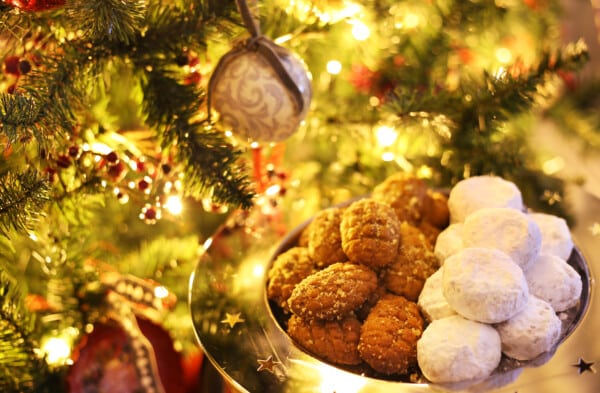
Like any festive season in Greece, Christmas has a strong connection with gastronomy. This time of the year, our cuisine focuses on sweets. Usually, we prepare them early in December and offer as treats throughout the whole month. The highlights are Melomakarona (soft cookies, drenched in honey syrup & covered with crushed walnuts) and Kourabiedes (almond cookies covered with sugar). They are in every house and locals love to have “fights” about which is the best one.
On cold days, people also serve their guests “Rakomelo”. It is a sweet alcoholic drink made of “Raki” (Cretan grape distilled drink) and honey. You can find its delicious recipe here.
Greek Christmas Tradition of singing carols
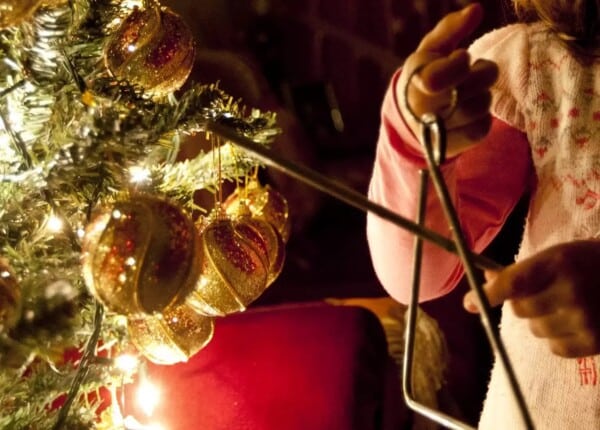
Christmas Carols (Kalanta) is one of the most beloved greek Christmas traditions. Young kids sing them on the mornings of Christmas Eve, New year’s Eve and the Eve of Epiphany (5th of January). Customarily they gather in small groups and go around the houses of their towns and villages. They knock on the neighbors’ doors and sing for them, followed by the sounds of a metallic triangle or even a small drum. The lyrics wish luck and prosperity to the residents of the house, so in exchange, they have to give them a treat or money.
Breaking a pomegranate for luck
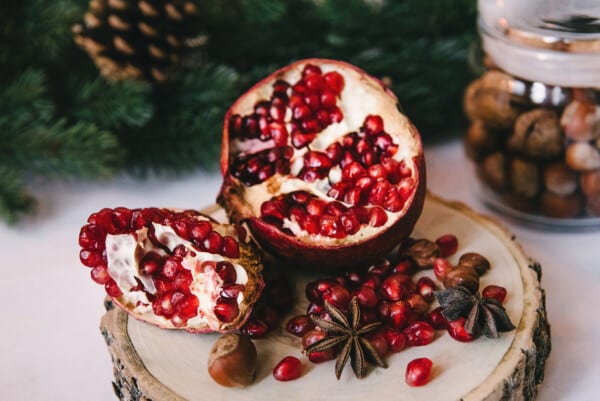
The clock hits midnight on New Year’s Eve! Hosts open the doors and windows for the old year to go and the new one to follow. The owner of the house steps outside the front door of the house and throws a pomegranate at the doorstep. Pomegranates are a symbol of luck and fertility. Therefore the more seeds spread on the floor the luckiest the household will be.
Cutting the Vasilopita
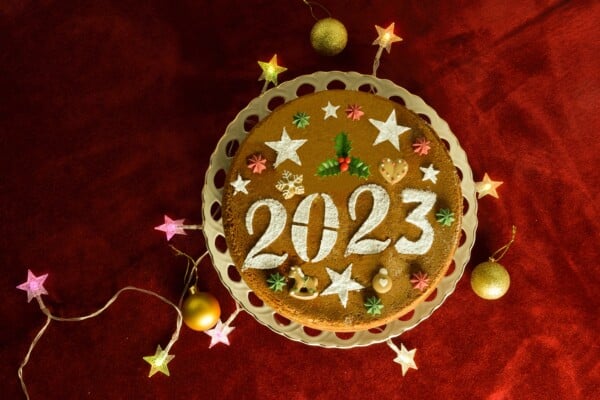
Right after welcoming the new year, Vasilopita comes to the table. It is a traditional sweet bread or cake, usually with Christmas decorations on top. Once it’s baked, a lucky coin is inserted in the bottom. When the New Year arrives, every family gathered for dinner, and cuts the cake into pieces, giving each guest one piece. The guest that finds the coin in their piece, will be lucky for the rest of the year!
According to greek tradition, Santa Claus is “Saint Basil”. His day is celebrated on the 1st of January of every year, and this is when he also delivers his gifts to children. This tradition comes as a celebration of his name, this is why he often has a piece of cake dedicated to him.
Summing up visiting Greece during Christmas will certainly fill you with joy and strong emotions. Although, if you have correlated Greece with sun and beaches we are looking forward to welcoming you to one of our properties in spring. Book your getaway now!
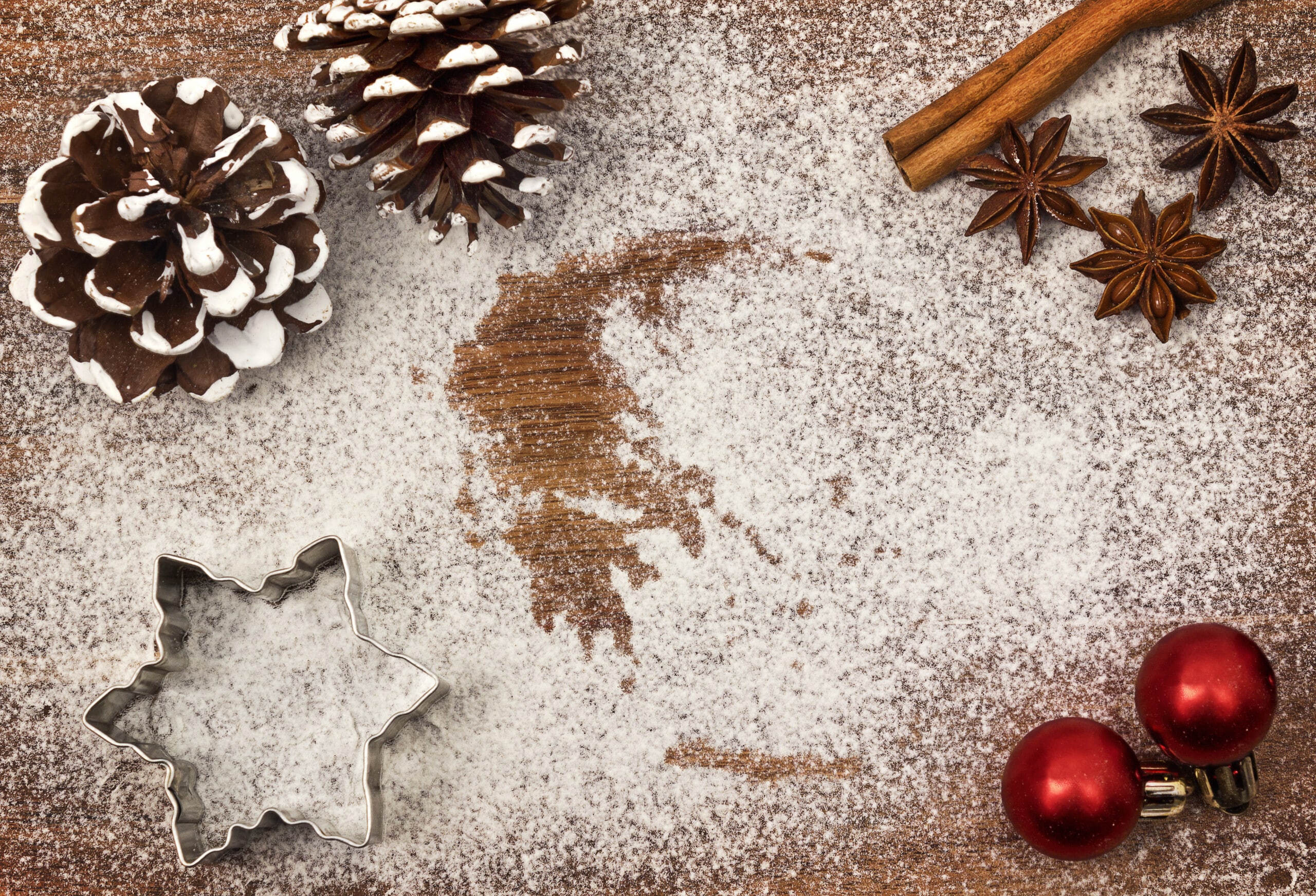




Thank You…had the bedt time.